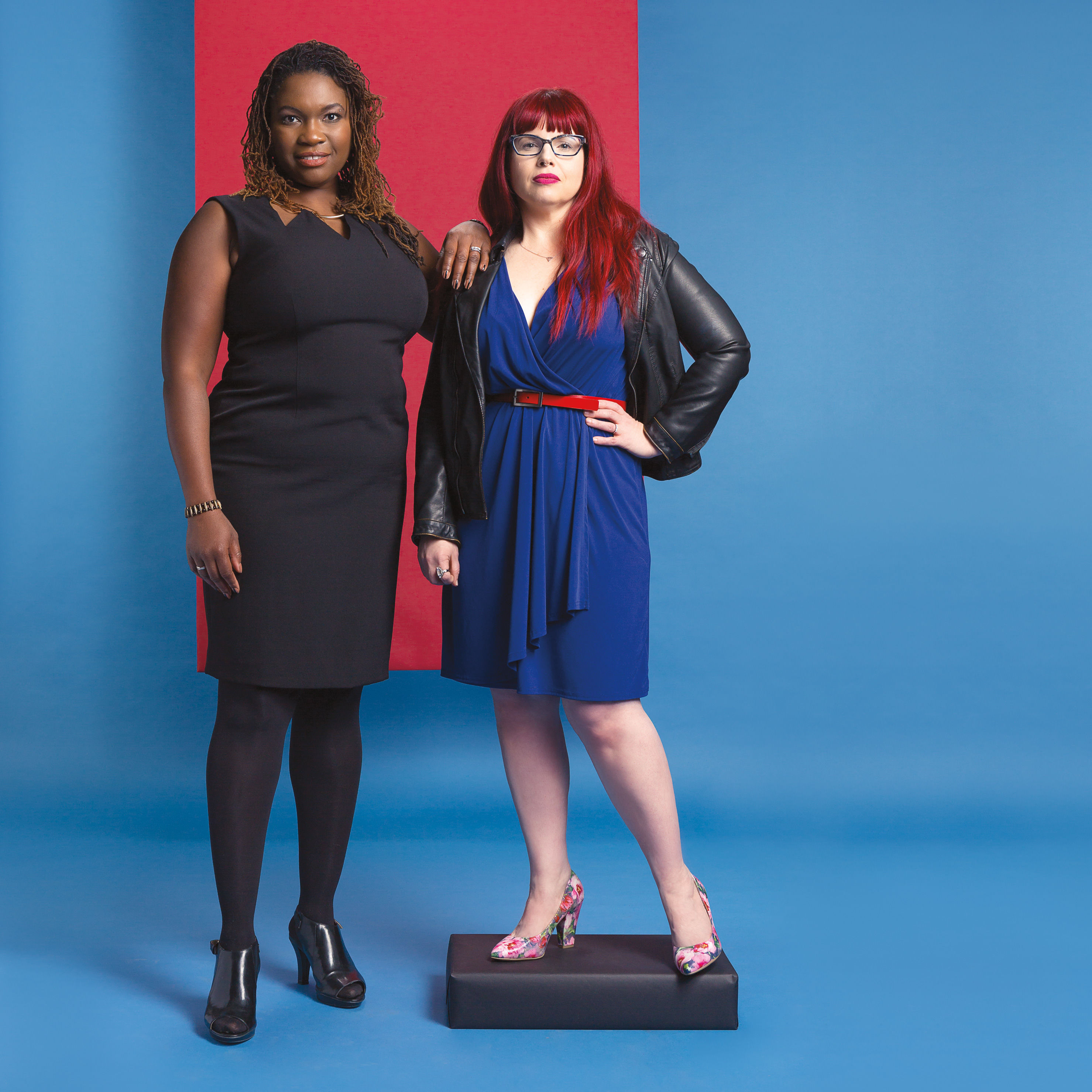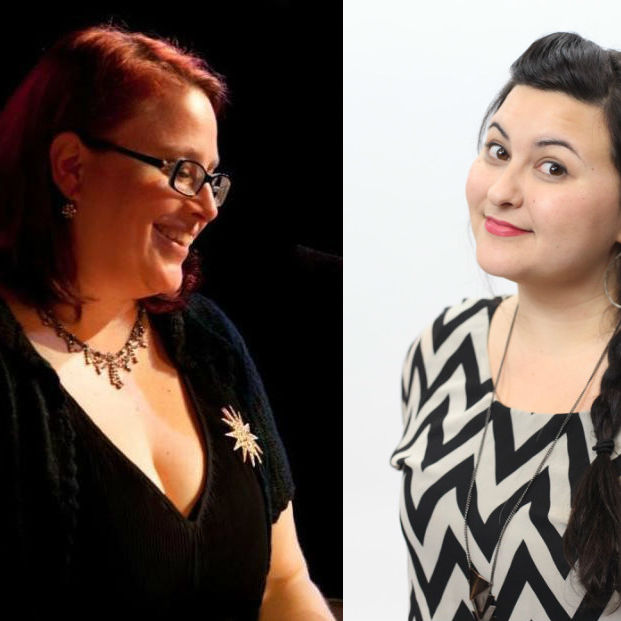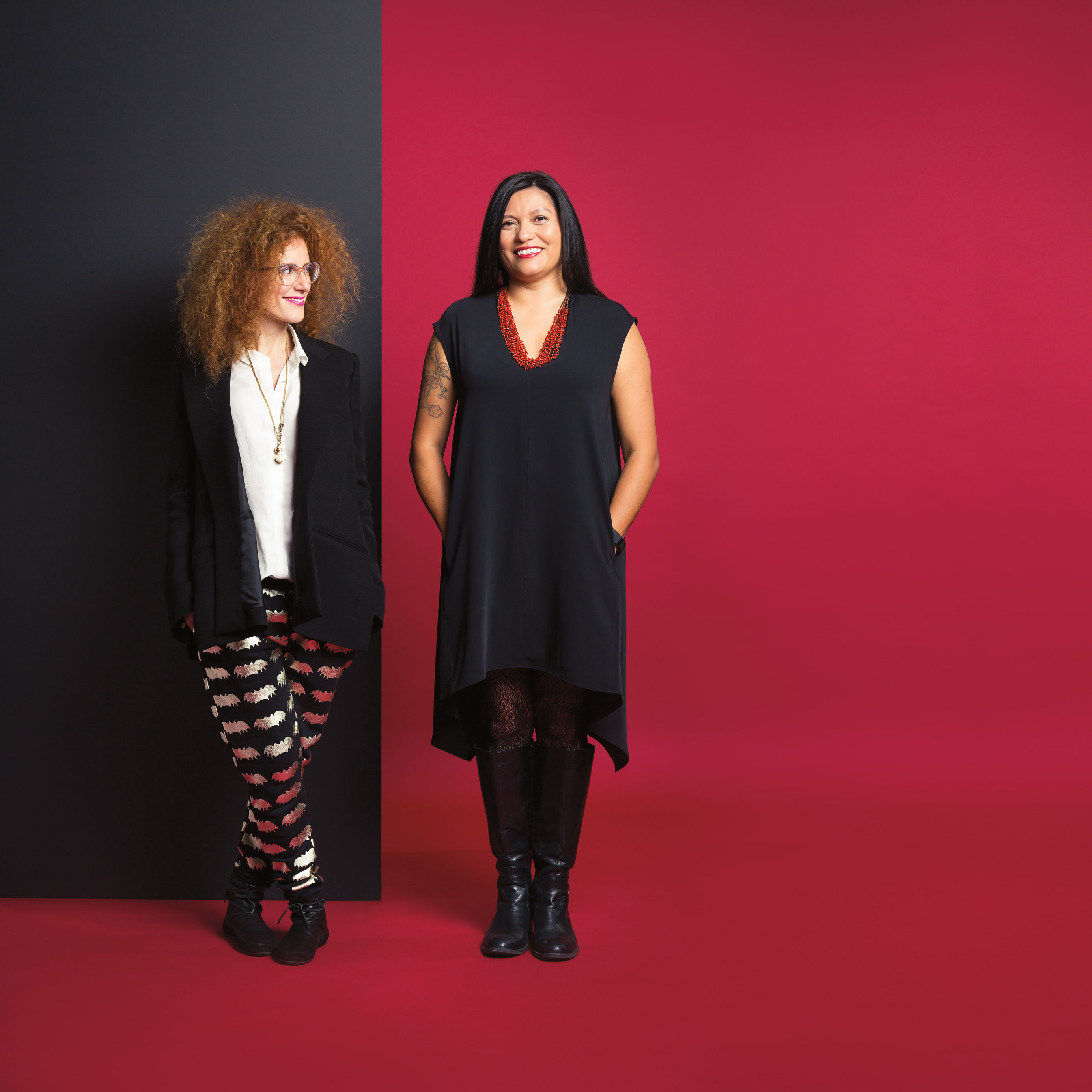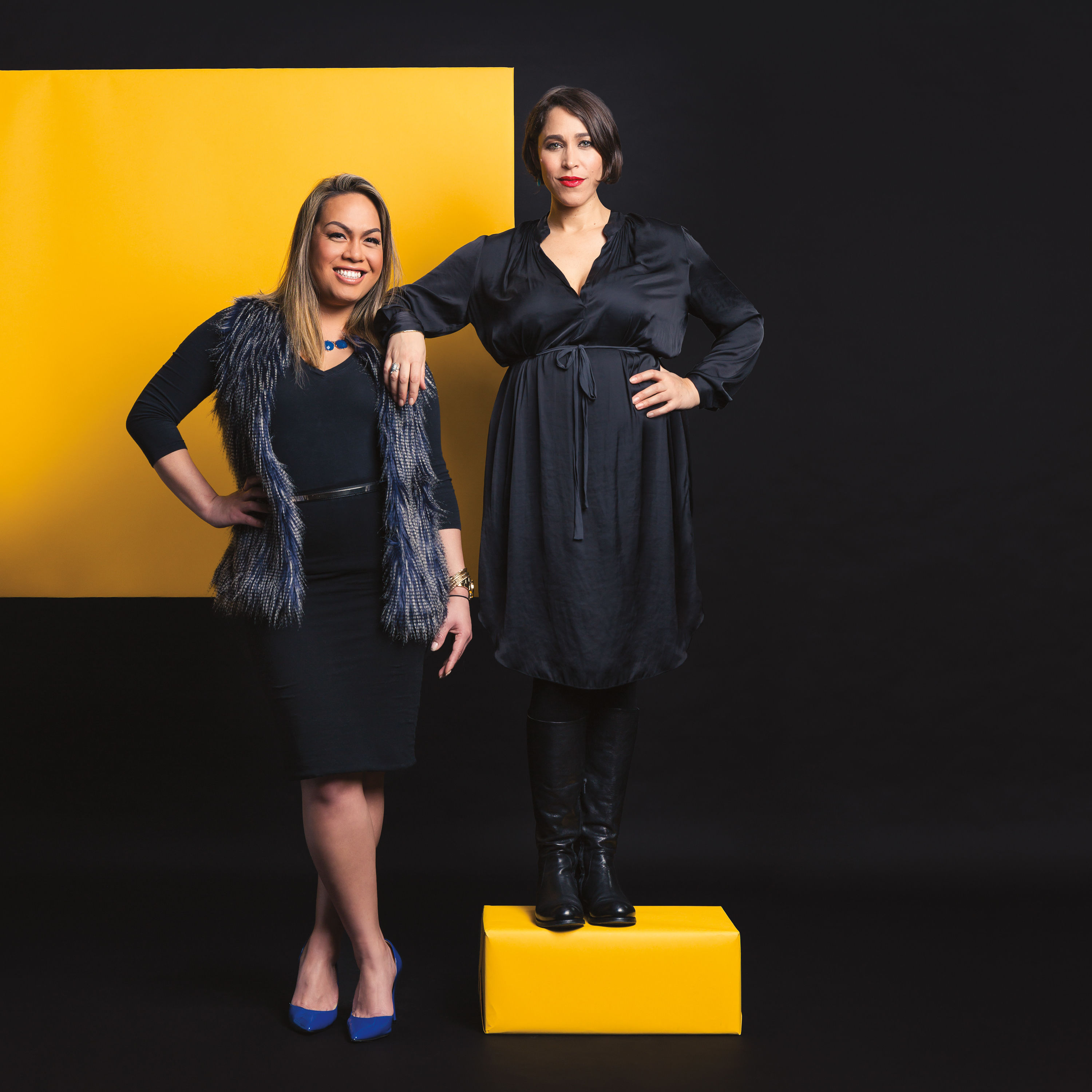Why Oregon Women Need Radical Reform at Home and On the Job
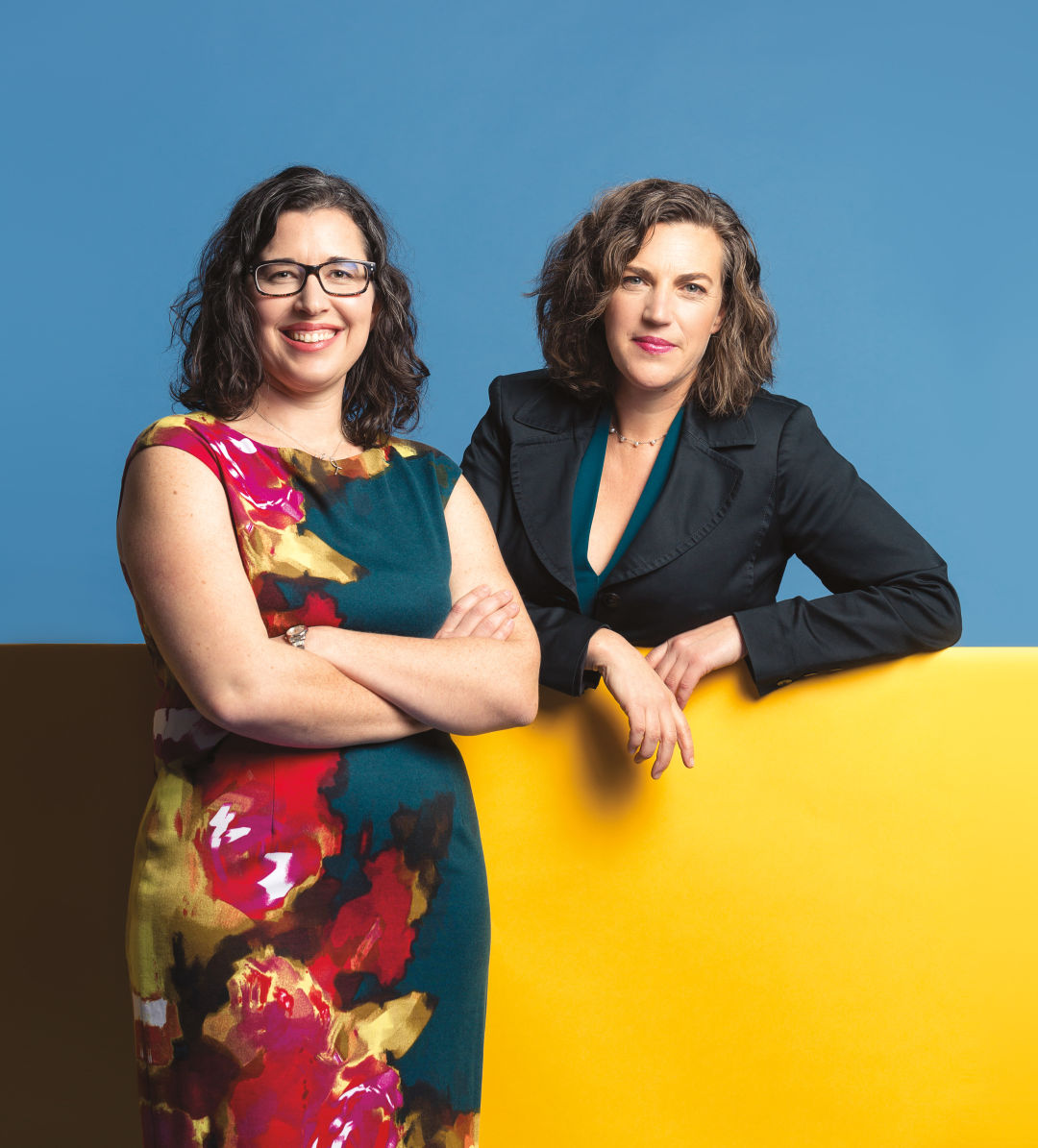
Image: Nicolle Clemetson
Self-described “fervent policy wonk” Andrea Paluso, head of Family Forward Oregon, lobbies for paid parental leave, flexible schedules, and other workplace reforms; p:ear cofounder Pippa Arend helps run a tenacious nonprofit that mentors homeless youth through art, music, and the outdoors. We asked them: What are the big-picture challenges facing Oregon women today?
Women and Money
ANDREA: What we’re seeing is that policies in workplaces haven’t evolved to support families, the majority of which [have both] adults in the workforce. That impacts everything: the way you have and raise kids, the way you care for your aging parents, the way you receive care from others. We’re trying to shift [those policies], because until we do we’re going to see women at an economic disadvantage forever. Also, women are working in record numbers, and more educated in many cases than men, [but] they’re not yet reflected in leadership [roles] in most kinds of organizations, whether that’s in business or in public office.
PIPPA: Except in the nonprofit sector.
ANDREA: Yes! In particular women are in [leadership roles in] very-low-paid parts of the nonprofit sector ... direct service and caregiving.
PIPPA: Yeah. Where are the men?
ANDREA: Nonprofits that primarily serve women or that have antipoverty missions have historically been seen as work that you should do because “you’re passionate about it” or because you “care about people” ... work traditionally done by women. And we don’t say those things about work that has traditionally been done by men.
PIPPA: This is interesting. I’ve also found that among women in [nonprofits], there is a kind of shame associated with money; a celebration of not making very much money, which drives me to my knees. At p:ear we feel that one of the most valuable things that we can do to mentor our young women and men is to pay ourselves well enough. To show that everyone deserves to do what they feel passionate about and be supported. But how to make it all work? That’s your job, right Andrea? [Both laugh.]
ANDREA: I think there’s something really radical in saying that what we do, whether in caregiving, the arts, or whatever, has great value to the broader community.
Care Has Value
PIPPA: I feel like you use the words women and families [interchangeably].
ANDREA: Yeah, but not necessarily. Women still do the majority of family caregiving work. Whether it’s for kids or for seniors, paid or unpaid, caregiving has always been done on the back of and invisibly by women. And at their great expense.
PIPPA: Are there better models?
ANDREA: Because of the way countries like Norway and Finland have constructed their governmental policies [to include paid family leave], men are more active in caregiving. Which is huge. Other countries measure caregiving in their GDP. Because it does have value to the community—having kids grow up to be happy, well-adjusted future workers. Not that I want to measure them by their future widgets of productivity.
Motherhood and Other Crises
PIPPA: I started p:ear with two other women 14 years ago; it’s been the marriage of my life. I don’t have kids. I’ve never wanted to pay that price. My agency in the world is the single most important thing to me. I’ve felt, “Oh, that’s selfish,” to take time and do something self-enriching [like make art or take a cello class]…. Making that choice, I am faced with this existential question: What is my life worth not connected to a partner or child?
ANDREA: But that happens regardless. I mean, I have kids, and I’ve had the same existential crisis.
PIPPA: Oh! Really? [Both laugh.] But isn’t that why people have kids? So you have this ... thing that lives on and gives meaning to your life? This is a weird sentence, but I am pleased that you’ve had a hard time finding meaning for yourself, too.
ANDREA: Wouldn’t it be amazing if the mothers of the world really did attain a higher status? Yeah, no. When I entered the work world and parenthood, I felt that I was gonna have a degree of agency about how I constructed my life because I had achieved a certain level of education, and done all the things that [help you] win at this game. And then I got into it and realized, no. Our work world, and the world at large, isn’t really structured in a way [to work for women]. So what you end up with is this sacrifice [of self] that I think most women don’t anticipate having to make. And don’t want to make. And don’t want to make for as long as they have to make it.
Disrupt and Rebuild
PIPPA: At p:ear, we work with 15-to-24-year-old homeless kids—about 50–50 male and female. They’ve come out of pretty dire poverty, from foster care. Some are currently in the sex industry, or survivors of abuse. You name it. They are [primarily] from Oregon, so these are our kids. And they’re making the best of a terrible situation. We’ve got a sort of perfect storm here: high unemployment, high drug use, a lot of poverty. So, we wind up with kids who are an inadvertent result of that.
ANDREA: What would make a big difference for the population you serve in the future?
PIPPA: More Head Start programs, which provide early access to food, community, and structure for tots—and support their families, too, most often. On the other end of that spectrum, I would love to see some kind of mandatory two-year community service on a state or federal scale that provides a sense of belonging and context for young people.
ANDREA: [On my end] we need profoundly higher public investments in childcare. If you think that we do better when kids are well cared for, and women can remain attached to the workforce, then you invest in it. Paid family and medical leave is a part of that system. Knowing that about a quarter of American women go back to work within two weeks of having a baby is crazy.
PIPPA: Do you think childcare could be a nonpartisan issue?
ANDREA: It should be. It’s something that affects families no matter what their political persuasion. And it’s central to a family’s economic security. In Multnomah County, the Coalition of Communities of Color released a report that for single mothers of color who had kids under 5, 84 percent of them were living below the federal poverty level. [That’s not about] individual choices. It’s about a system that’s failing. If you’re gonna improve poverty around moms, you [provide] access to affordable child care, flexible [work schedules], a living wage. [That is what] allows mothers to have economic security.
PIPPA: Yes!
ANDREA: [We’ve been talking about] how this stuff is connected. It’s like you’re seeing in the experiences of your kids how our broken system has manifested in people’s lives. Now, how do we disrupt the cycle and rebuild?
PIPPA: Disrupt and then build—I like that.
